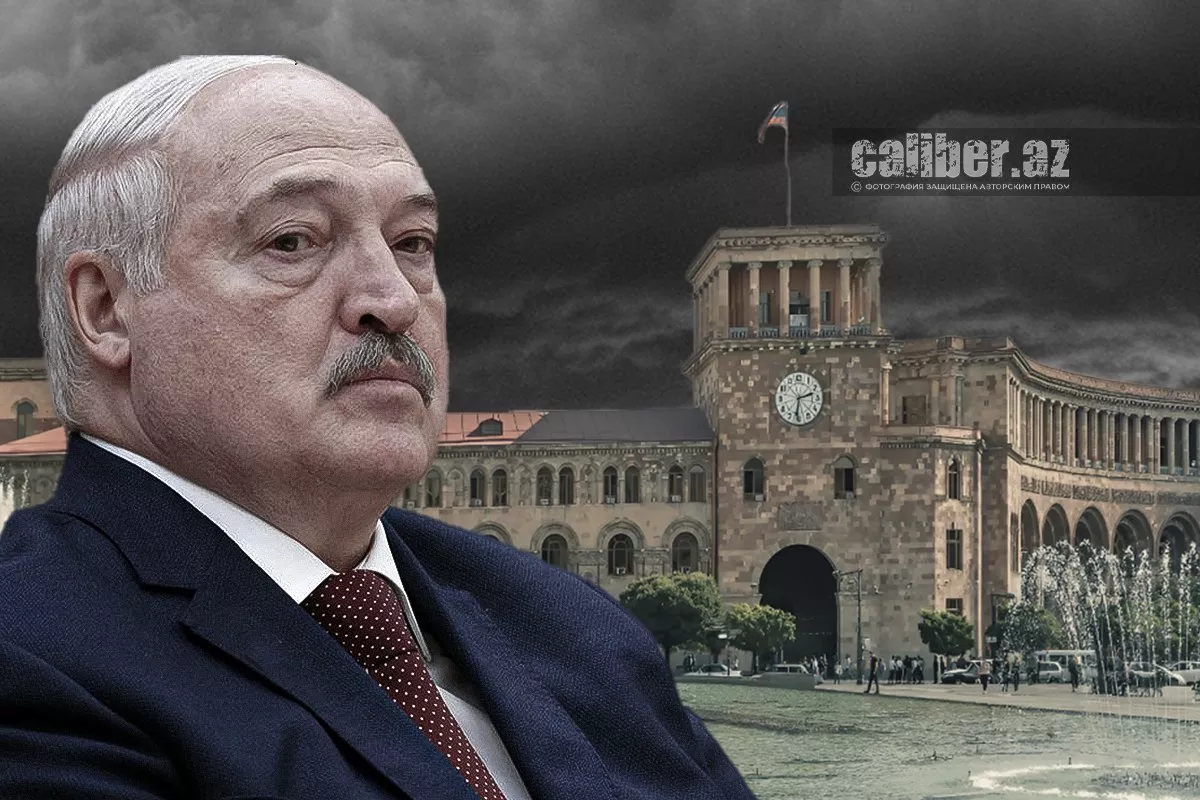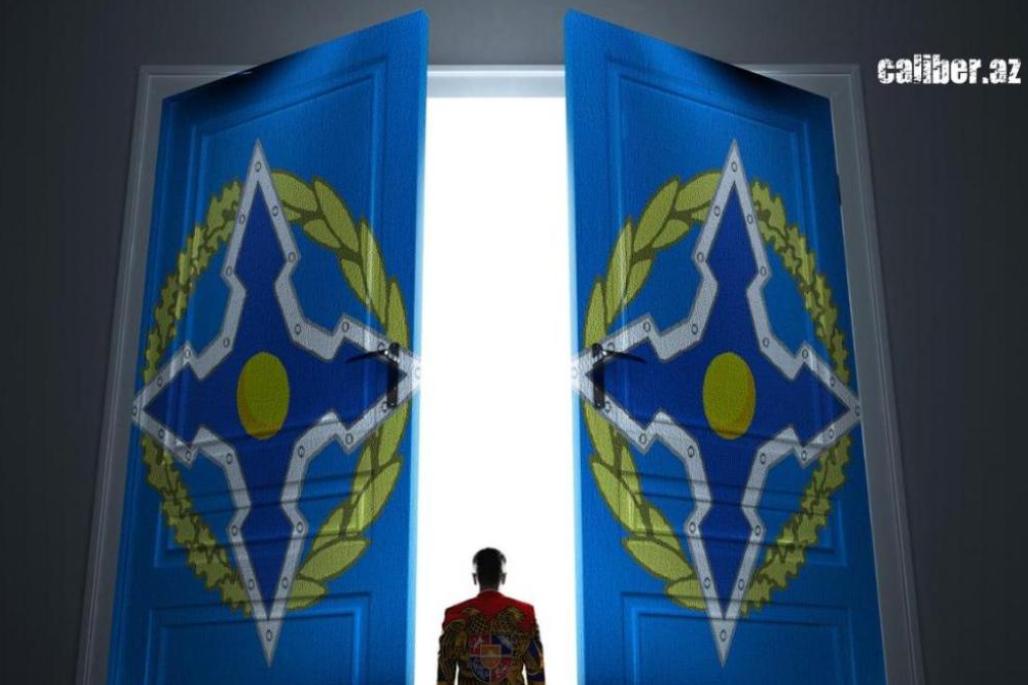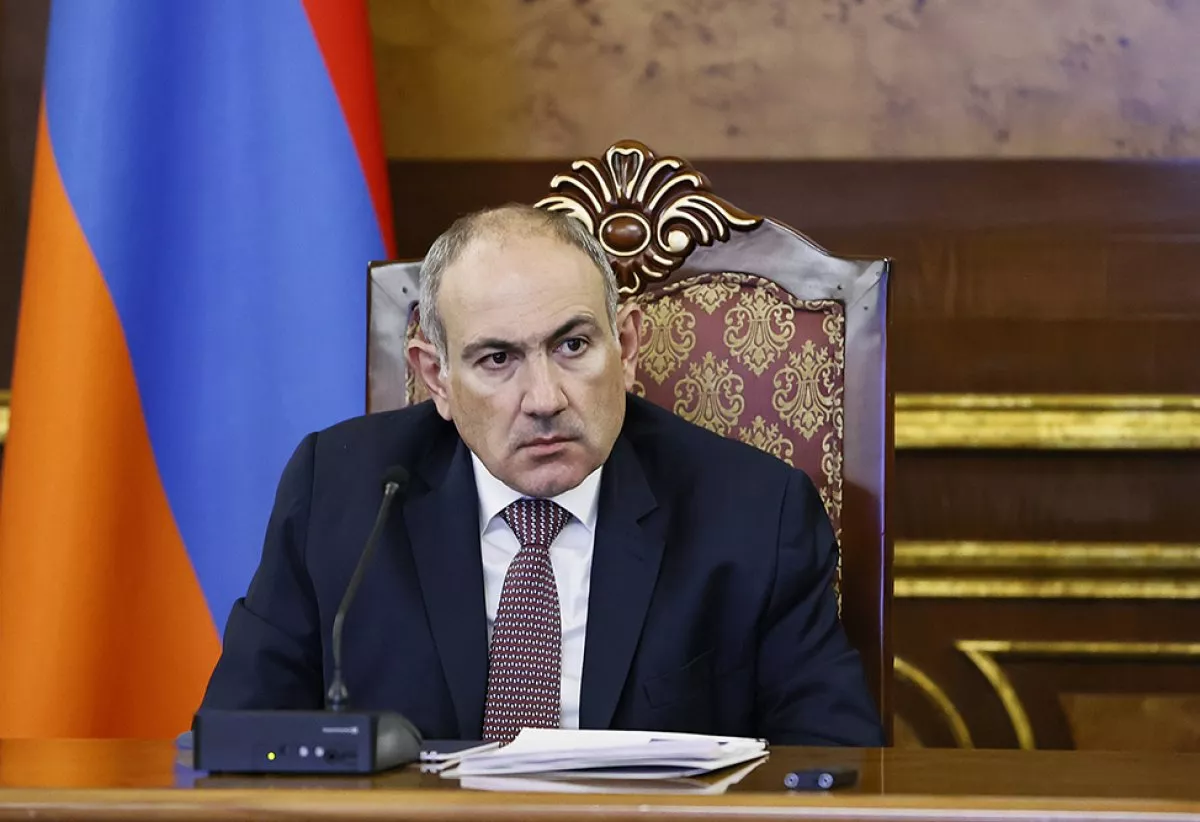Armenia's strategy in the Russia-West confrontation Playing both sides
Armenian Prime Minister Nikol Pashinyan has announced plans to continue undermining the Eurasian Economic Union (EAEU) in 2025. The EAEU is Russia's flagship economic integration project. While Armenia is currently benefiting from billions earned through bypassing Western sanctions on Russia, it also aims to secure political gains in the West by positioning itself as a disruptor of all Russia-linked cooperation formats. The Russian response to Armenia's actions has been cautious. Both Moscow and the West are constructing their own illusions about Armenia—Russia sees Armenia as a partner in circumventing sanctions, while the West views it as a pro-Western, "European" state. Eventually, both of these illusions are likely to collapse, given their detachment from reality.
Yerevan's theatre of the absurd
Armenia’s leadership has made its stance on the Eurasian Economic Union (EAEU) unmistakably clear. During last week’s meeting of the Supreme Eurasian Economic Council, Prime Minister Pashinyan made a point of showing his disdain for both the event and its participants. Even the traditionally pro-Western and pro-Armenian Kommersant was taken aback by the Armenian leader’s antics, calling the EAEU meeting a "pre-New Year’s absurdity." Pashinyan had plenty of opportunities to make his mark at the EAEU—after all, Armenia held the presidency of the organization in 2024.
To start, Pashinyan blatantly lied, claiming he had contracted COVID-19 and therefore could not attend the summit near St. Petersburg. Instead, he chaired the meeting via videoconference. Moreover, he deliberately arrived late to the expanded session of the Council, signalling to the representatives of countries considering EAEU membership that there was "no agreement" within the bloc. Even President Putin had to apologize for his late colleague until Pashinyan finally appeared on screen. During the publicly broadcast meeting, Pashinyan tried to prevent Belarusian President Lukashenko from speaking, despite the fact that, as the head of the country set to chair the EAEU in 2025, Lukashenko was entitled to speak. Pashinyan responded to Lukashenko’s remarks with a sarcastic warning, hinting that Armenian delegates would not attend the next EAEU meeting. While he did not openly state the reason, he implied it was related to the event being held in Minsk, with which Pashinyan has been in open conflict over Belarus's support for Azerbaijan’s territorial integrity.

Russian media attempted to downplay the scandal. Interestingly, they didn’t even bother to explain why the Council meeting was held in Russia’s St. Petersburg, even though Armenia held the presidency of the integration bloc. Meanwhile, the Armenian leader had announced back on December 4 in the Armenian Parliament, "I personally deemed it unwise to hold the event in Armenia. [...] Unfortunately, for reasons you are well aware of, and which I have also publicly stated from this podium, not all members of the Supreme Economic Council of the EAEU are welcome in Armenia." Pashinyan deliberately refrained from specifying which members of the Council were unwelcome, intending to maximize the political dividends from his stunt. The trick was simple: on one hand, pretending it was about Belarusian President Alexander Lukashenko, while on the other, slyly signalling to the West and pro-Western audiences that it was actually about Russian President Vladimir Putin and the arrest warrant issued by the so-called "International Criminal Court." Pashinyan was directly asked about this, and, naturally, he seized the opportunity to hint at this very narrative. In fact, the Armenians had clearly signalled their unwillingness to host the EAEU summit in Yerevan as early as March of the previous year—well before the May visit of Belarusian President Lukashenko to Azerbaijan, after which he was suddenly declared persona non grata in Armenia.
What Pashinyan is doing in relation to the EAEU appears to be a repetition of the model of dismantling multilateral organizations, a tactic developed by Pashinyan’s team during their sabotage of the largest post-Soviet security integration structure—the Collective Security Treaty Organization (CSTO). It all began when, shortly after coming to power, Armenia’s current leadership, without any prior warning to other CSTO members, first arrested the organization’s sitting secretary-general and then proceeded to undermine its work. At the same time, Yerevan began demanding de facto assistance from CSTO members in the occupation of Azerbaijani territories. However, Pashinyan did not, and still has not, withdrawn from the CSTO, and the other members did not expel Armenia. Naturally, the credibility of the CSTO has been significantly harmed by the actions of Armenia in this regard.
Moscow tolerates Yerevan’s actions
Nevertheless, Moscow has tolerated these regular actions by Pashinyan for the past seven years. Even in recent months, after Yerevan expelled the EAEU summit from Armenia, Russian Deputy Prime Minister Alexei Overchuk praised the Armenian leadership, saying: "Armenia plays a very active and positive role within the framework of the EAEU." Earlier, he had also remarked: "Armenia understands that it won’t receive the benefits it gets from EAEU membership anywhere else. The country's leadership understands this... Therefore, we see statements from Armenian Prime Minister Nikol Pashinyan, made at the Supreme Eurasian Economic Council and Eurasian intergovernmental councils. These are always very pointed words of support for the economic agenda of the EAEU."
Meanwhile, Russian President Vladimir Putin’s press secretary Dmitry Peskov explained right after Pashinyan refused to attend the St. Petersburg summit just before the New Year: "Our Armenian colleagues are not participating in the CSTO; they have suspended their participation. However, Armenia remains a very important participant in both the EAEU and the CIS. Armenia and the Armenian people gain many dividends from this participation. So, this is a two-way street: both the CIS and our Armenian friends have an interest in this."

Seeing that undermining the CSTO has gone unpunished, the Yerevan establishment has decided to expand its practice of destabilizing Russia's created structures. This will allow Armenia to gain even more political dividends in the West—the only direction of foreign policy that Pashinyan’s team holds dear.
For the Russian side, the cost of patience is high—the chaos orchestrated by the Armenian team in the EAEU is having a destructive effect on the organization’s image and its future prospects. It’s no surprise that Uzbekistan recently stated it considers "more prudent to maintain its observer status in the EAEU" rather than join as a full member.
Instead, Yerevan is trying to pull Iran into the EAEU—Armenian ambassadors in Tehran are talking about "Armenia as a bridge between Iran and the EAEU," following the recent signing of a free trade agreement between the EAEU and Iran. However, Iran currently appears to be a problematic addition for the EAEU. Armenia is promoting fruitful cooperation with Iran in the context of the latter’s rapprochement with the EAEU, but all these projects boil down to narrow, niche endeavors such as modernizing the checkpoint in Armenia’s Meghri, the "Gas for Electricity" program, and constructing a third high-voltage power line between Iran and Armenia.
At the same time, Iran has quickly started to politicize the EAEU, and during a recent meeting of the union’s council, Iran’s Minister of Industry and Mines delivered an impassioned speech, beginning with a grand declaration: "In the face of the unbridled crimes of the Zionist regime and the American imperialism supporting them, the synergy of developing countries is a necessity!" Pashinyan, who repeatedly stresses the inadmissibility of the "politicization" of the EAEU, did not stop him, unlike President Lukashenko, whom he attempted to interrupt several times. It’s clear why Pashinyan wants Iran—this country has become the main hope for Armenian revanchists. But why would the Kremlin support such a model of cooperation with Iran?
No illusions about strengthening economy
Despite these obvious jabs from Yerevan toward the Kremlin, both sides continue to maintain their relationship, including within the framework of the EAEU, which Russian leadership considers the most important result of its regional integration efforts. During a visit to Kazakhstan in October, Armenian President Vahagn Khachaturyan also effectively agreed with Russian partners, stating that the economic indicators of the EAEU confirm the real effectiveness of the organization after ten years of existence.
Why Moscow and Yerevan continue to stick together becomes clearer when we look at some financial matters. Over the past three years, trade between the two countries has experienced a fantastic boom. This is not related to the development of Armenia's economy or any productive activity. Instead, it is tied to Yerevan’s ability to bypass anti-Russian sanctions, primarily through EAEU mechanisms. Western media often claim that "the EAEU allows Russia to circumvent sanctions," but fail to mention one of the key facilitators of this circumvention—Yerevan. The relevant figures continue to rise, and they are impossible to ignore.
Last year, Armenia’s trade turnover with the EAEU, primarily with Russia, again increased—by October (the latest available statistics), it surpassed $11 billion. This means that growth rates have accelerated, and in 2024, trade between Russia and Armenia doubled (in 2023, it grew by half compared to 2022). The Russian side clearly values this aspect of the relationship, and in September, Russian Deputy Prime Minister Overchuk stated: "In the first half of the year, trade turnover between Armenia and Russia exceeded $8.4 billion. This is, of course, a huge plus."
The essence of this growth is an open secret. Yerevan economist Armen Koyan, commenting on the boom in Russian-Armenian trade after 2022, noted: "Exports to Russia have increased for goods not produced in Armenia, goods with a re-export component: machinery, equipment, generators, etc. Of course, under normal circumstances, it would be good to have large exports, but this should not create any illusions that our economy has become stronger and that we are capable of conquering new horizons."
Against this backdrop, in September, during a major forum with representatives of the Armenian diaspora, Pashinyan stated that, while increasing trade with the EU and the US, his government intends to maintain trade with Russia: "The EAEU market is more accessible to our business community than others. We are not aiming to reduce the volume of our trade with the EAEU."
Does it sound paradoxical coming from a radically pro-Western politician? Yet, everything is logical—Pashinyan understands that he simply cannot afford a break with Russia, no matter how much he may want it. It's not only about the current windfall from sanctions-driven trade but also about more fundamental issues. Yerevan realizes not only the geopolitical vulnerability of a separatist (without neighbouring countries' participation) path to the West but also the challenges that this entails.
Recently, the Armenian leader explained to diaspora activists in a typically revanchist manner: "If we see a more or less realistic opportunity to become a full-fledged member of the European Union and, among other things, control the threats that may arise on this path, we will definitely seize this moment." Among the threats, he seems particularly concerned about basic communication routes between Armenia and the EU—"Here, the relationship between Georgia and the EU, Türkiye and the EU, is also very important, and in this context, how Armenia's relations with Türkiye will develop."

But the most important thing is that the Yerevan establishment clearly understands that Armenia's value in the eyes of the collective West is tied precisely to its role as a disruptor within the Russian camp. If it distances itself from this camp, it will lose its functionality and value for the West. One must also not forget another aspect: Armenia's leadership sees that the situation in the coveted Europe is simply dire. Recently, it was calculated that, by the end of the year, profits at leading German engineering firms had fallen by 54% to 91%. This signals the weakening of one of the nine main donor countries within the EU (those that contribute more to Brussels than they receive). The other 18 EU countries are chronic recipients of subsidies, and surviving without them will be difficult. Armenia's leadership might have dreamed of joining their ranks, a prospect that has always been unlikely and is now turning into a political fantasy. Against this backdrop, the Russian economy, after the West's sanctions finally halted capital outflows from Russia, is growing and has already recovered from the GDP slump caused by the invasion of Ukraine. And Armenia's elites have begun to think: how can they get their share of Russia's growth?
Syrian lessons
Notably, the instability and fruitlessness of Armenia's engagement with the EAEU and Russia are obvious. This partnership cannot be called unprecedented, and therefore, its likely outcome does not require speculation—one only needs to look at similar examples. One such example has emerged in recent weeks—Syria. Despite the ideological and political regime differences between Armenia and Syria, there are instructive parallels in the model of interstate cooperation between Russia and these two states. Russia has been developing its opportunistic relationship with Damascus since the 1950s, hoping to use it as a gateway to a new region, while tolerating any provocations from the Assad regime towards the USSR, Russia, and their allies. Billions of Soviet dollars were invested in Syria, and thousands of Soviet and Russian citizens lost their lives while working with the Assads. By doing so, Moscow simultaneously closed off many other policy options in the Middle East.
So, what do we ultimately see from these toxic relationships? Neither the USSR nor Russia ever received anything in return, and the regime eventually decayed and collapsed, likely burying any possibility for Russian influence in the region for decades to come. Interestingly, the Assad family also tried to distance itself from Moscow and sought rapprochement with the West—Hafez al-Assad from the 1970s to the 1990s engaged in cynical deals with Western capitals behind the Soviet Union's back, and Bashar al-Assad visited Paris even in the 2000s.
In essence, modern Armenia is not just treading a slippery path towards geopolitical irrelevance, but also leading several external powers down the same road. One could dismiss this as irrelevant, but unfortunately, such a policy—seeking opportunistic avenues to sustain a revisionist course while ignoring the possibilities of peace and cooperation with neighbours—damages the entire region. The Assad regime complicated life for the entire Middle East, and the Armenian nationalist state is doing the same in the South Caucasus. Naturally, its neighbours cannot remain indifferent to such behaviour.








